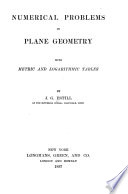 | Joe Garner Estill - Geometry - 1896 - 168 pages
...a side of the circumscribed equilateral triangle, the radius of the circle being ^§ LOGARITHMS. 1. The logarithm of a number is the exponent of the power to which an assumed number must be raised to produce the first number. 2. Since logarithms are exponents, the... | |
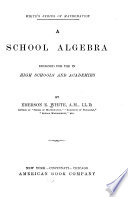 | Emerson Elbridge White - Algebra - 1896 - 418 pages
...sixth term. 10. -, -, -, are in arithmetical progression. Show that abc CHAPTER XX. LOGARITHMS. 580. The logarithm of a number is the exponent of the power to which a fixed number, called the base, must be raised in order to produce the given number. Thus, since 34... | |
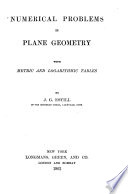 | Joe Garner Estill - 1896 - 186 pages
...a side of the circumscribed equilateral triangle, the radius of the circle being ^3 LOGARITHMS. 1. The logarithm of a number is the exponent of the power to which an assumed number must be raised to produce the first number. 2. Since logarithms are exponents, the... | |
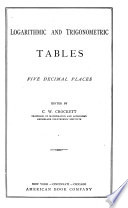 | Charles Winthrop Crockett - Logarithms - 1896 - 132 pages
...corresponding to .005 .-. Quotient, .605 The computer should use the marginal tables mentally. LOGARITHMS. Б. The logarithm of a number is the exponent of the power to which a given number called the base must be raised to produce the first number. If A = ¿*, a is called... | |
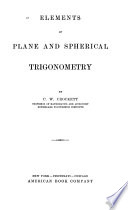 | Charles Winthrop Crockett - Plane trigonometry - 1896 - 318 pages
...9.0 corresponding to .005 .605 The computer should use the marginal tables mentally. 1 LOGARITHMS. 5. The logarithm of a number is the exponent of the power to which a given number called the 6ase must be raised to produce the first number. If A = e", a is called the... | |
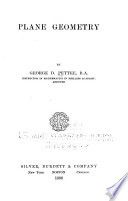 | George D. Pettee - Geometry, Modern - 1896 - 272 pages
...(Cornell, Sept., 1891.) 23. Given- = -. Constructs. (Cornell, June, 1893.) x 3 APPENDIX LOGARITHMS 1. The logarithm of a number is the exponent of the power to which some assumed number must be raised to produce the given number. The assumed number is called the base.... | |
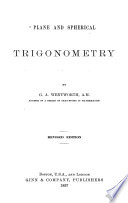 | George Albert Wentworth - Trigonometry - 1897 - 234 pages
...Properties of Logarithms. Any positive number being selected as a base, the logarithm of any other positive number is the exponent of the power to which the base must be raised to produce the given number. Thus, if a" = N, then n = \ogaN. This is read, n is equal to log N to the base a. Let a be the base,... | |
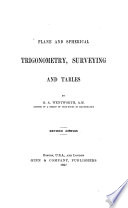 | George Albert Wentworth - Logarithms - 1897 - 384 pages
...Properties of Logarithms. Any positive number being selected as a base, the logarithm of any other positive number is the exponent of the power to which the base must be raised to produce the given number. Thus, if a" = N, then n = \ogaN. This is read, n is equal to log N to the base a. Let a be the base,... | |
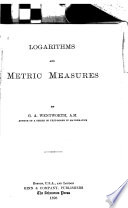 | George Albert Wentworth - 1898 - 112 pages
...referred. The base may have any positive value except unity. The logarithm of a number in any system is the exponent of the power to which the base must be raised to produce that number. Thus, if a is the base, and n and x have such values that a* = x, then, in the system... | |
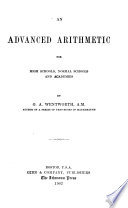 | George Albert Wentworth - 1898 - 424 pages
...without breadth or thickness. Liter. The unit of capacity in the metric system. Logarithm of a number. The exponent of the power to which the base must be raised to obtain the given number. Long division. The method of dividing in which the processes are written in... | |
| |